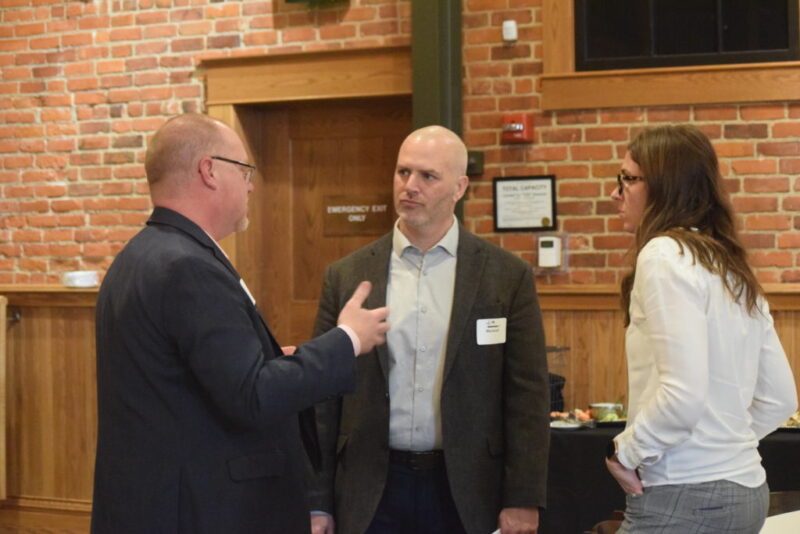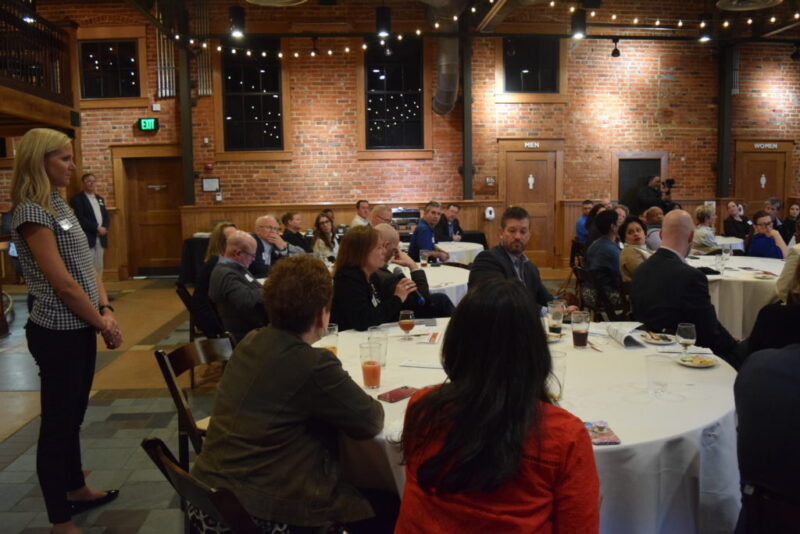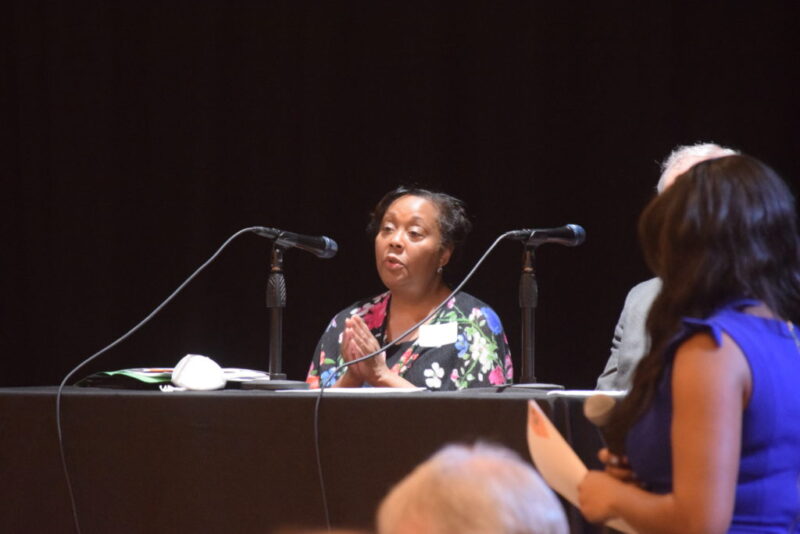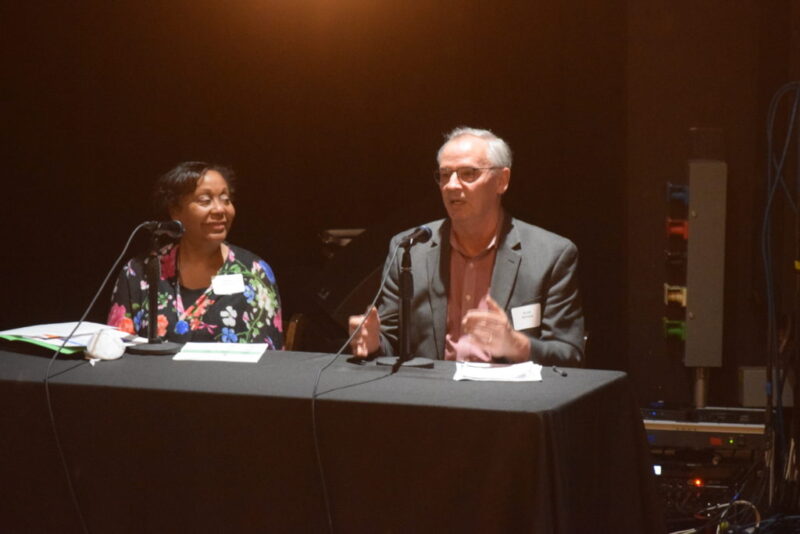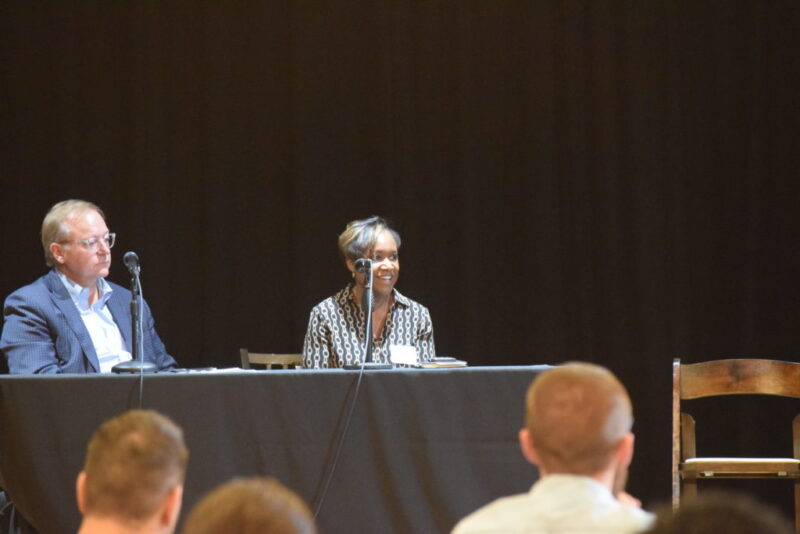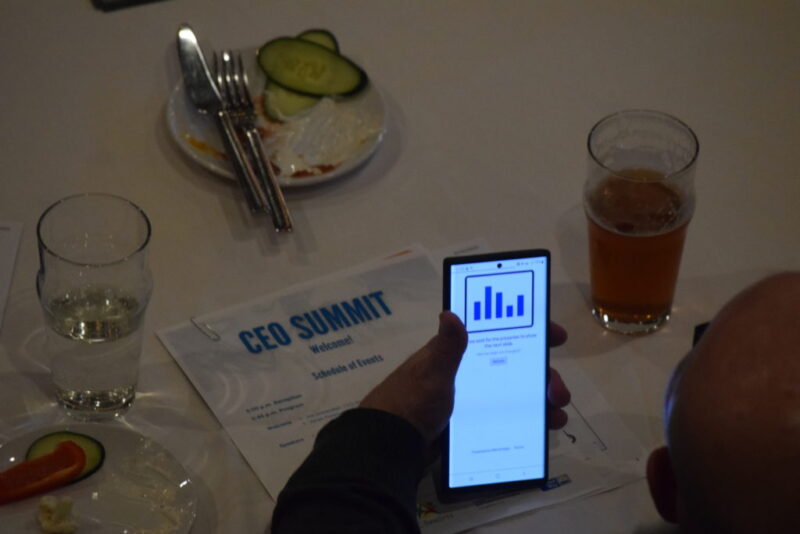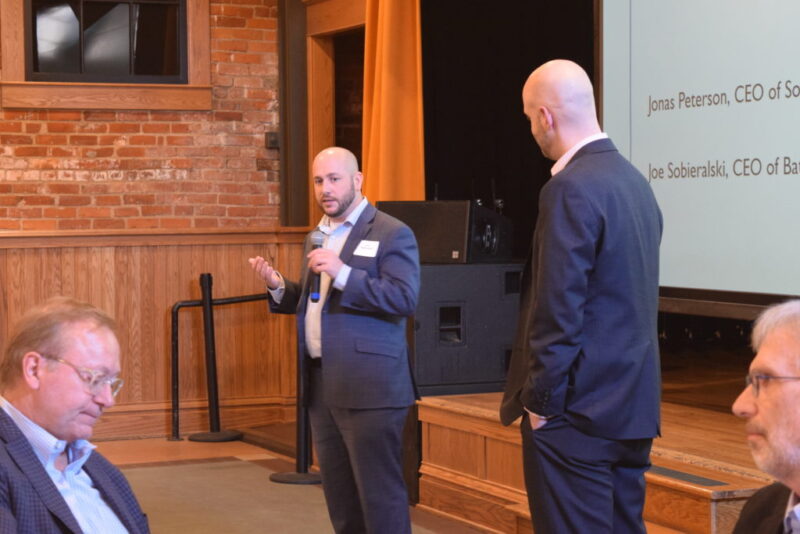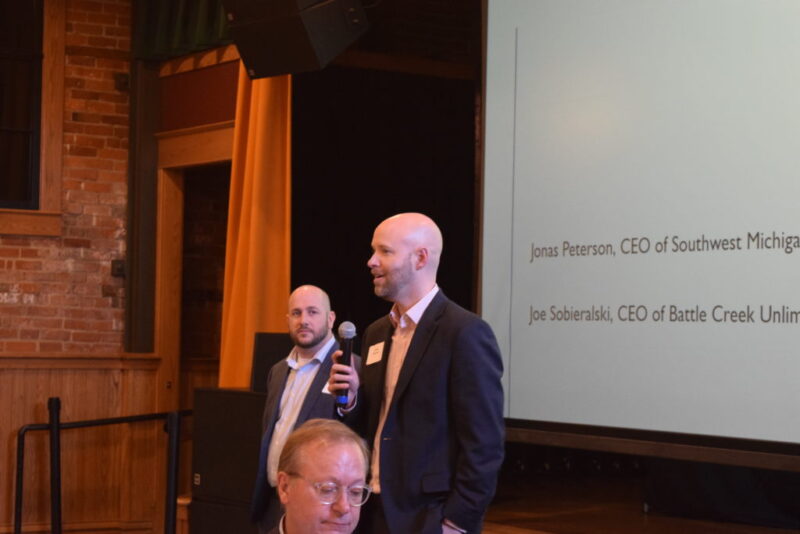
More than 50 business leaders representing companies across Battle Creek and Kalamazoo gathered last month to learn about childcare challenges and steps the business community can take to help solve them.
United Way of the Battle Creek and Kalamazoo Region, in partnership with KC Ready 4’s and Pulse at the W.E Upjohn Institute for Employment Research, hosted the 2022 CEO Summit on March 16 at Bell’s Eccentric Café. Its aim was to equip employers with information to help support their employees with young children and implement policies and practices that address childcare challenges.
“Historically, the early childhood sector has struggled to truly engage the corporate sector. The CEO Summit on Childcare provided us an opportunity to move from learning to action,” said Kathy Szenda Wilson, Founder & Co-Executive Director of Pulse at the W.E. Upjohn Institute for Employment Research. “Momentum is evident in the connections being made and the commitment to taking action. We are in the process of developing follow-up experiences that will support our corporate partners interested in taking the next best steps.”
What we know
Thanks to United Way’s partnership with United For ALICE, community leaders have a wealth of new data now available that can help inform equitable solutions to the many challenges our communities face – including the lack of affordable and high-quality childcare. This latest report reveals that the number of children growing up in financial hardship in Michigan and nationwide is drastically higher than is widely reported. According to the Federal Poverty Level, 17% of children in Michigan lived in poverty in 2019. United for ALICE data shows that another 27% were also growing up in hardship, in households that earned above the poverty level but less than what it costs to afford the basics. These households are ALICE: Asset Limited, Income Constrained, Employed. Click here to discover interactive online dashboards as well as an overview research brief.
The reality is that between families in poverty and those who are ALICE, 44% of all children in Michigan in 2019 – and 71% of Black children – lived in households with income below the ALICE Threshold, struggling to afford essentials in the communities where they lived. The April ALICE in Focus report highlights children and their unique place in ALICE households and reveals some startling data in our own communities. Looking specifically at the core early childhood age range of 0-4, the data shows that in 2019, 9,200 (57%) of children were living below the ALICE threshold in Kalamazoo County, and 4,315 (38.6%) in Calhoun and Barry counties.
We encourage you to check out the interactive online dashboard and use the data to:
- engage the right people in co-creating equitable solutions that work
- better understand barriers
- focus resource allocation
- discover new partnerships to help solve challenges
Summit learnings
March’s CEO Summit featured speakers Szenda Wilson; Kristyn Buhl-Lepisto, Executive Director of KC Ready 4s; Jonas Peterson, CEO of Southwest Michigan First; Joe Sobieralski, CEO of Battle Creek Unlimited; Chris Sargent, CEO of United Way of South Central Michigan; and Tim Bartik, Senior Economist at W.E. Upjohn Institute for Employment Research.
Panelists were Kim Carter, Tri-Share Employer and Superintendent of Battle Creek Public Schools; Cheryl Johnson, Vice President of Human Resources at Bronson Healthcare; Scott Nykaza, CEO at Kalsec; and Sean Welsh, Regional President at PNC Bank.
Bartik began by sharing statistics regarding childcare and the issues that it has caused many Michigan workers, including an inadequate supply of high-quality affordable childcare and high-quality pre-K, leading to the damage of U.S labor supply and competitiveness, he said.
Greater support from our society – government, families, and businesses – is needed to ensure affordable and high-quality childcare/pre-K, which in turn will create a better business climate, Bartik added.
READ: Why businesses should care about childcare
The panelists, in a session moderated by WWMT Journalist Emirrora Austin, shared their own insight on what has worked in their organizations and answered questions from the audience.
When asked about helping to pay portions of childcare costs for employees, Carter said: “This is just another benefit for recruitment and retaining in our organization and helping some of our employees that are not paid at the level we would love to have them. This is a different way to invest in them. Coupling that with lots of other opportunities to really think about creatively how to source in great talent and invest in them in different ways.”
Sargent provided closing remarks.
“It’s a local issue,” he said. “It’s a county issue. It’s a state issue. That’s really where we can gain the most traction. Working together and not saying ‘I hope somebody else has this figured out because I need employees to fill my jobs tomorrow.’ Nope, that’s us. Let’s go figure it out.”
Visit our YouTube channel to watch a full recording of the CEO Summit. To learn more, email getinvolved@uwbckr.org or visit changethestory.org/ceo-summit-resources.

